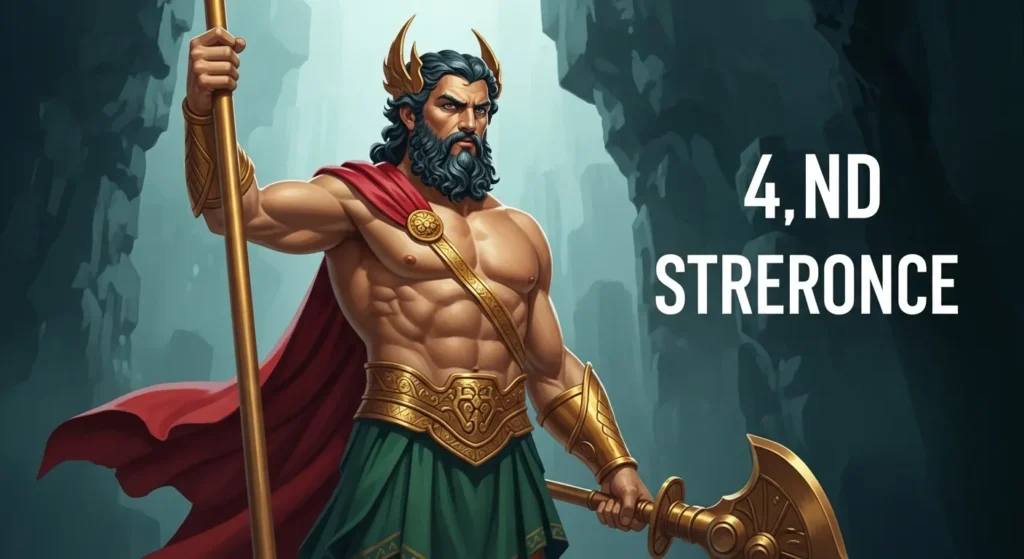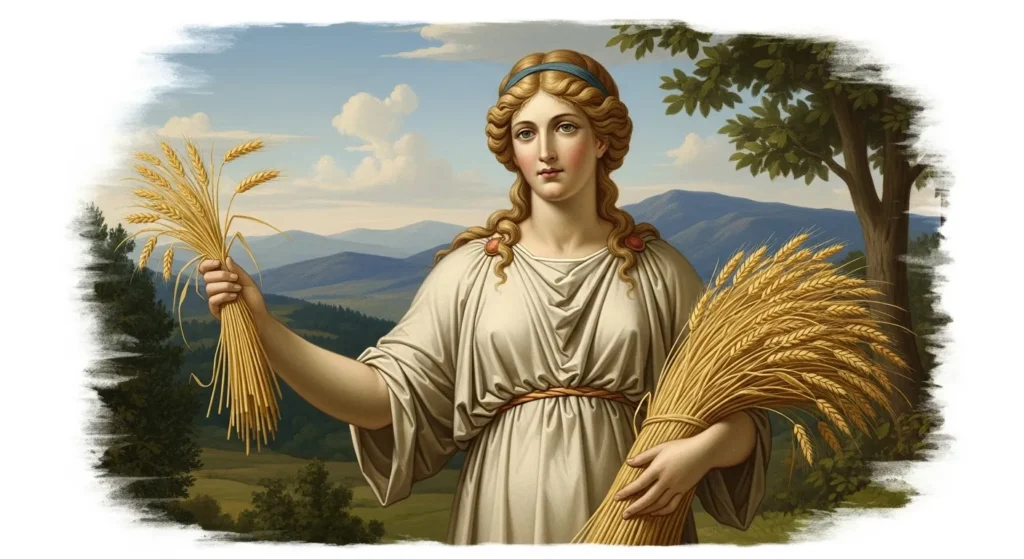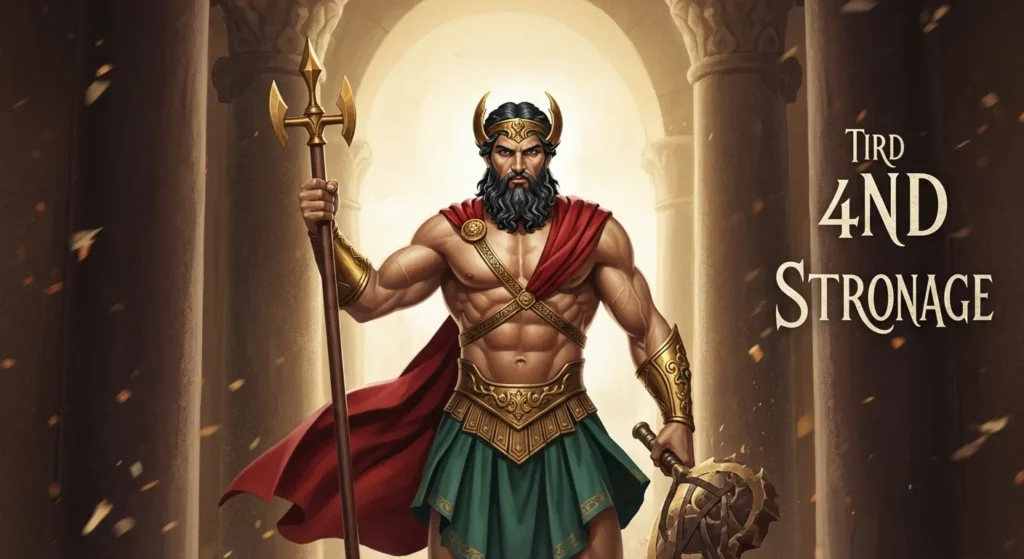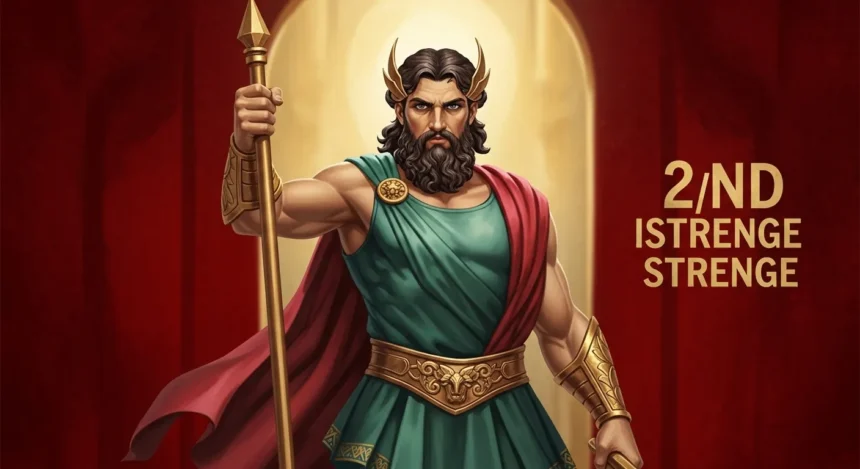Table of Contents
When we think about the gods of Mount Olympus, one name always rises first Zeus. But then a natural question follows: who comes right after him in strength and power? Many myths, legends, and even modern rankings point to Poseidon, the god of the sea, as holding that second spot. Yet, there’s debate. Some argue for Hades, others for Athena. Let’s walk through the myths, stories, and evidence to see who truly deserves the title of the second strongest Greek god.
Why Poseidon Is Ranked Second
We often see Poseidon presented as Zeus’s closest rival. Ancient sources tell us that Zeus, Poseidon, and Hades drew lots after defeating the Titans to divide the world. Zeus claimed the sky, Poseidon took the sea, and Hades ruled the underworld. While Zeus became king, Poseidon’s influence on earth and among sailors was unmatched.
Today, many modern rankings still place Poseidon firmly in second. For example, a widely cited list of “The 16 Most Powerful Greek Gods” ranks him right after Zeus, gathering over 610 votes, just a hair behind Zeus’s 613.
Poseidon’s Role in Greek Myths

We can’t ignore the way myths shape reputation. Poseidon wasn’t just a sea god he was an active player in epic stories:
- In The Odyssey, he punishes Odysseus with storms that delay his journey home for ten years.
- In The Iliad, he sides with the Greeks, showing his willingness to defy Zeus’s orders.
- In the contest for Athens, he strikes the earth with his trident to create a saltwater spring, battling Athena for the city’s honor.
These stories show us a god who stood near Zeus in power and wasn’t afraid to clash with him.
His Power Over Seas & Earthquakes
Poseidon carried the mighty trident, a weapon that could churn oceans, summon storms, and even split the earth. Because of this, he earned the title “Earth-shaker.” His control extended beyond waves; it stretched into natural disasters that terrified mortals.
We also see his creativity Poseidon is credited with creating the first horse, gifting humanity one of its most powerful animals. This shows that his strength wasn’t just destructive, but also life-giving.
Could Hades Be Second?
Some argue that Hades deserves the silver crown. As the ruler of the underworld, he controlled the souls of the dead and the riches beneath the earth—gold, silver, and gems. He also owned the Helm of Darkness, granting him invisibility, a weapon Zeus himself respected.
But Hades often remains outside the twelve Olympians, since he rarely lived on Olympus. His strength is unquestionable, but his role was more hidden and less active in human affairs compared to Poseidon.
Athena’s Strength and Strategy

Others look to Athena, goddess of wisdom and war, as a possible rival for second place. Unlike Ares, who represented blind rage, Athena mastered strategy, intelligence, and skill. Some myths even say she could wield Zeus’s thunderbolt and Aegis shield.
She was also the only deity clever enough to win the contest for Athens, offering the olive tree that symbolized peace, food, and prosperity. Her power may not have been as raw as Poseidon’s, but her brilliance in strategy gave her a different kind of strength.
Ranking Evidence from Ancient & Modern Sources
When we examine both ancient stories and modern interpretations, patterns emerge:
- Ancient Views: The “Big Three” Zeus, Poseidon, and Hades were clearly above the others in raw power.
- Votes & Lists: In modern lists, Zeus ranks first (613 votes), Poseidon second (610), Hades third (533), and Athena fourth (461).
- Influence on Mortals: Poseidon’s storms, Hades’s wealth of the underworld, and Athena’s inventions all shaped human life in visible ways.
These records suggest Poseidon consistently edges out the others, even if only slightly.
Stories That Show Rivalries

We often forget that the gods were like a family, full of conflict and rivalry. Poseidon challenged Zeus’s authority multiple times, sometimes teaming with Hera and Athena against him. Hades, while quieter, demanded respect through his control over death. Athena, ever wise, often found herself as Zeus’s trusted ally, showing that even Zeus leaned on her intelligence.
These rivalries remind us that strength wasn’t just physical; influence, wit, and daring also mattered.
What About Primordial Deities?
If we expand the field, the Olympians weren’t even the most powerful beings in existence. Primordial gods like Nyx (Night) were feared even by Zeus himself. Titans like Cronus once ruled before being overthrown. And figures like Hecate, goddess of magic, or Prometheus, who defied Zeus to help mankind, remind us that raw ranking is never simple.
Still, within the Olympian family, Poseidon’s place as second strongest feels secure.
How Modern Culture Shapes the Ranking
Today, movies, video games, and books keep these gods alive in our imagination. Poseidon is often shown as Zeus’s equal, sometimes even stronger when stories center around the sea. Hades appears as mysterious but powerful, while Athena remains a favorite for her wisdom and strategy.
These portrayals keep the debate alive, but they also confirm Poseidon’s dominance as the second pillar of Olympus.
Final Verdict
Looking at myths, domains, and modern votes, we see a clear answer. Zeus rules supreme, but Poseidon, with his power over the seas and earthquakes, stands as the second strongest Greek god. Hades and Athena bring their own strengths, but neither consistently outrank Poseidon.
So, when we ask, who is the second strongest Greek god? the verdict points firmly to Poseidon the Earth-shaker, creator of horses, and master of storms.
FAQs
Which Greek god is the second strongest?
Poseidon, the god of the sea and earthquakes, is widely regarded as the second strongest Greek god after Zeus.
Who is the second powerful god?
Most myths and modern rankings place Poseidon as the second most powerful, just below his brother Zeus.
Who is the top 1 Greek god?
Zeus, king of the gods and ruler of the sky, is considered the strongest and most powerful in Greek mythology.
Is Poseidon the second strongest god?
Yes, Poseidon is generally ranked second, known as the Earth-shaker with control over seas, storms, and earthquakes.
References
- Hesiod, Theogony – Ancient account of the origins and hierarchy of the gods.
- Homer, The Iliad & The Odyssey – Epic poems featuring Zeus, Poseidon, Athena, and other Olympians.
- Apollodorus, Library of Greek Mythology – A compilation of myths about the Olympian gods.
- Burkert, Walter. Greek Religion. Harvard University Press, 1985.
- “The 16 Most Powerful Greek Gods, Ranked.” Updated September 15, 2025.
- “Top 10 Most Powerful Greek Gods: Unveiling the Olympian Pantheon.” Updated June 19, 2025.
- Powell, Barry. Classical Myth. Pearson, 2018.
- Morford, Mark, and Robert Lenardon. Classical Mythology. Oxford University Press, 2019.
Disclaimer: This article is for educational and informational purposes only. It is based on interpretations of Greek mythology and modern sources, not absolute historical fact.
Author’s – Richard Stephens
As a mythology researcher and writer, I explore how ancient myths connect to modern thought. My focus is on making Greek mythology clear, engaging, and relevant. I believe Poseidon rightly holds the title of second strongest god.








